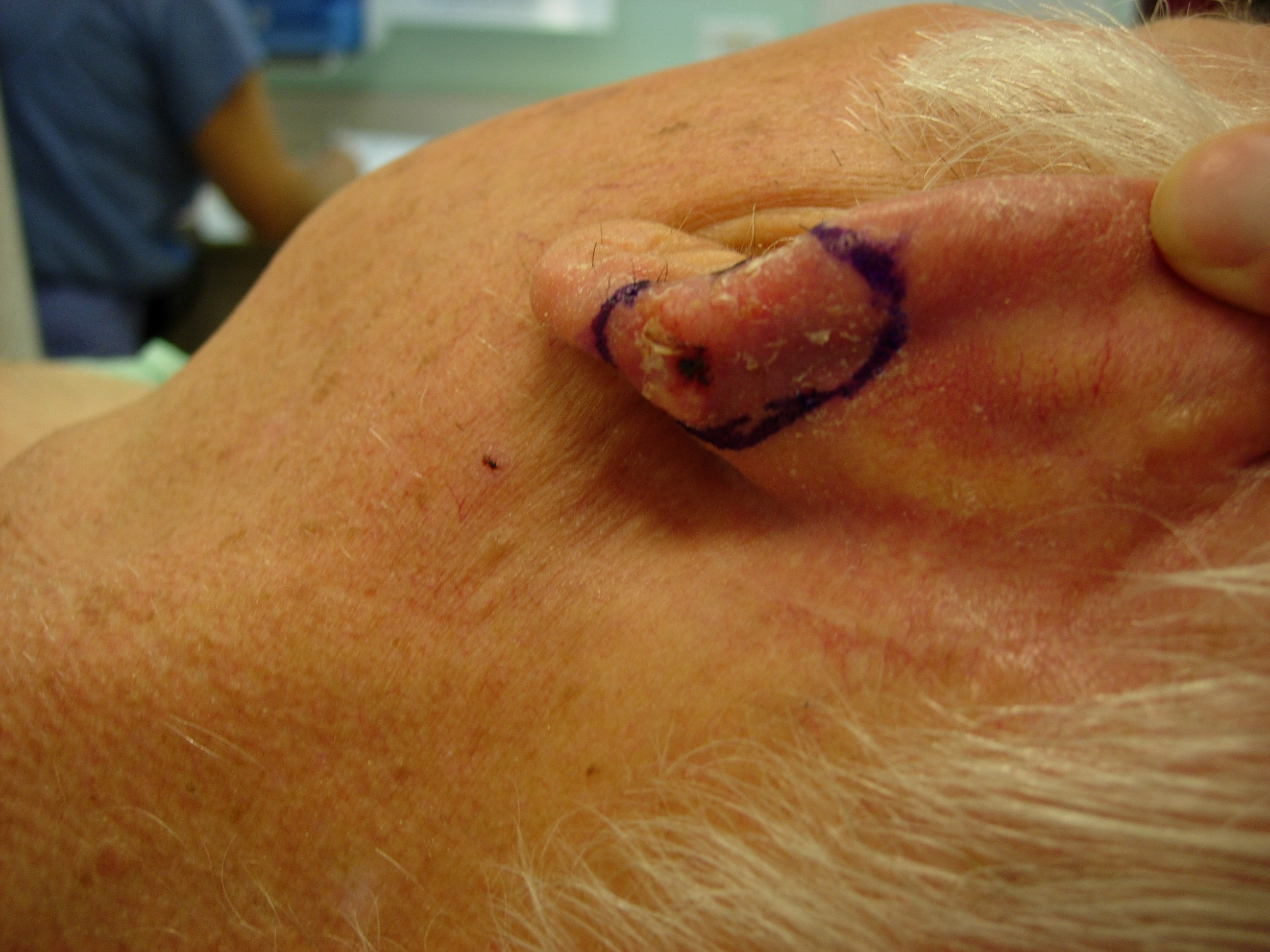 Being told you have skin cancer is alarming to say the least, but if you’ve been diagnosed with squamous cell carcinoma (SCC), exactly how worried should you be? Of the three most common types of skin cancer, SCC is considered less serious than melanoma, but more serious than basal cell carcinoma, which very rarely spreads,” explains Dr. Adam Mamelak, a board certified Dermatologist and Mohs surgeon in Austin, Texas. SCC sometimes grows into the deeper layers of the skin and spreads to other parts of the body. While the potential for this happening is quite low, certain characteristics of the cancer suggest a higher risk.
Being told you have skin cancer is alarming to say the least, but if you’ve been diagnosed with squamous cell carcinoma (SCC), exactly how worried should you be? Of the three most common types of skin cancer, SCC is considered less serious than melanoma, but more serious than basal cell carcinoma, which very rarely spreads,” explains Dr. Adam Mamelak, a board certified Dermatologist and Mohs surgeon in Austin, Texas. SCC sometimes grows into the deeper layers of the skin and spreads to other parts of the body. While the potential for this happening is quite low, certain characteristics of the cancer suggest a higher risk.
So when is squamous cell carcinoma of the skin considered high risk or more aggressive? These factors indicate a higher risk of the SCC spreading or recurring:
Poor Differentiation
Differentiation of a tumor refers to how closely the cancer cells resemble the cells of origin, which are, in this case, the squamous skin cells. “When SCC is poorly differentiated, the cancer cells don’t resemble the normal cells very much at all,” Dr. Mamelak shares.
Size
Tumors larger than 2 cm when identified have poorer outcomes than smaller lesions.
Depth
Skin cancers that invade deeper than 6mm below the surface of the skin have a higher potential to spread.
Location
SCCs of the lips and ears tend to be the most aggressive. “The lower lip is more frequently the site for a tumor than the upper lip because of greater sun exposure,” says Dr. Mamelak. Likewise, the top of the ear is a common location for SCC.
Perineural Invasion
Squamous cell carcinoma can grow around nerves in the skin. When observed under the microscope, this is referred to as “perineural invasion.”
A Weakened Immune System
The immune system is weak in patients taking medication for organ tranplants and in other diseases such as leukemia and lymphoma.
Contact Us
The best ways to prevent squamous cell carcinoma are limiting sun exposure and being alert to any changes in the skin or suspicious growths. If you have any questions about a recent diagnosis or want to check for suspicious skin lesions, please contact us.
Dr. Mamelak treats patients with skin cancer at Sanova Dermatology and The Austin Mohs Surgery Center.
